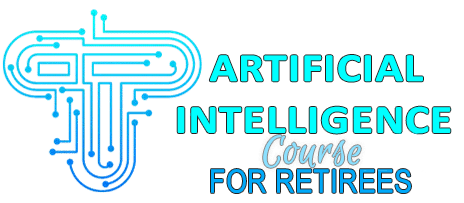
Embracing the Future: How AI is Revolutionizing Retirement
Introduction: Exploring the Exciting Frontier of AI in Retirement
Welcome to the new era of retirement living, where Artificial Intelligence (AI) is reshaping the way seniors experience their golden years. Gone are the days of traditional retirement norms; now, retirees have access to a plethora of AI-powered tools and technologies designed to enhance their quality of life and promote independence.
Imagine having a personal assistant that anticipates your needs and provides timely reminders, a smart home that adjusts to your preferences without manual intervention, or health monitoring systems that detect potential health issues before they escalate. These are just a few examples of how AI is revolutionizing retirement living.
But what exactly is AI, and how does it fit into the retirement landscape? Simply put, AI refers to the simulation of human intelligence processes by machines, particularly computer systems. These systems can analyze data, learn from it, and make informed decisions, all without human intervention.
Think of AI as your trusted companion on the journey of retirement, always there to lend a helping hand and enhance your daily experiences. Whether it's managing your finances, staying connected with loved ones, or maintaining your health and well-being, AI has the potential to simplify and enrich every aspect of retirement living.
In this article, we'll explore the myriad ways AI is transforming retirement living, from health and wellness applications to social connections and financial management. Join us as we delve into this exciting frontier and discover how embracing AI can revolutionize your retirement experience.
The Power of AI in Health and Wellness
One of the most impactful areas where AI is revolutionizing retirement living is in health and wellness. With AI-powered health monitoring systems, retirees can proactively manage their health and detect potential issues early on, leading to better outcomes and improved quality of life.
Imagine having a personal health assistant that tracks your vital signs, monitors your medication adherence, and provides real-time feedback on your overall well-being. With AI, this level of personalized health monitoring is not only possible but increasingly accessible to retirees.
AI-driven wearable devices, such as smartwatches and fitness trackers, can collect valuable data about your activity levels, sleep patterns, and heart rate. This data can then be analyzed to provide insights into your health status and identify any deviations from your normal baseline.
Furthermore, AI-powered telehealth platforms enable retirees to consult with healthcare professionals remotely, eliminating the need for frequent trips to the doctor's office. Whether it's a routine check-up, medication management, or ongoing health monitoring, telehealth services powered by AI make healthcare more convenient and accessible for retirees.
Additionally, AI algorithms can analyze medical imaging scans with remarkable accuracy, aiding in the early detection of conditions such as cancer, cardiovascular disease, and neurodegenerative disorders. By catching these conditions in their early stages, retirees have a better chance of receiving timely treatment and achieving favorable outcomes.
Overall, AI has the potential to revolutionize the way retirees approach their health and wellness, empowering them to take a proactive stance on their well-being and enjoy a higher quality of life in their retirement years.
Enhancing Social Connections Through AI
Retirement often comes with a shift in social dynamics, as individuals may find themselves with more free time but fewer opportunities for social interaction. However, AI is stepping in to bridge this gap and enhance social connections among retirees.
AI-powered social networking platforms tailored for retirees provide a space for like-minded individuals to connect, share experiences, and engage in meaningful discussions. These platforms use advanced algorithms to match users based on shared interests, hobbies, and life experiences, fostering the formation of new friendships and support networks.
Moreover, virtual assistants equipped with AI capabilities can facilitate social interactions for retirees who may face mobility or accessibility challenges. From scheduling virtual coffee chats with friends to organizing group activities and events, AI assistants can help retirees stay connected with their social circles and maintain an active social life.
Furthermore, AI-driven language translation tools break down communication barriers, allowing retirees to connect with individuals from diverse cultural backgrounds and engage in cross-cultural exchanges. Whether it's participating in online language exchange programs or joining virtual book clubs with international members, retirees can broaden their social horizons and cultivate enriching relationships with people from around the world.
By harnessing the power of AI to enhance social connections, retirees can combat feelings of loneliness and isolation, leading to greater overall happiness and well-being in their retirement years.
